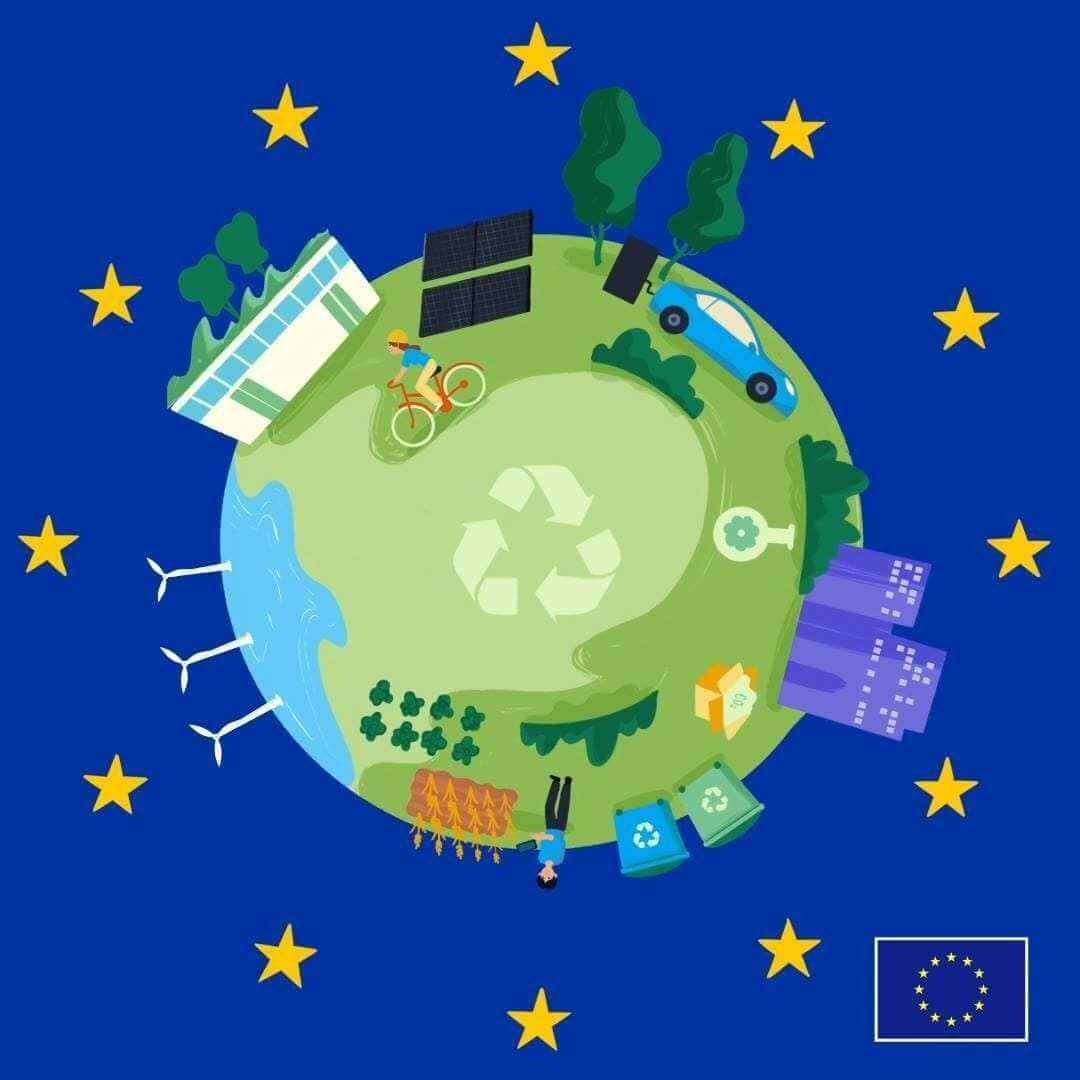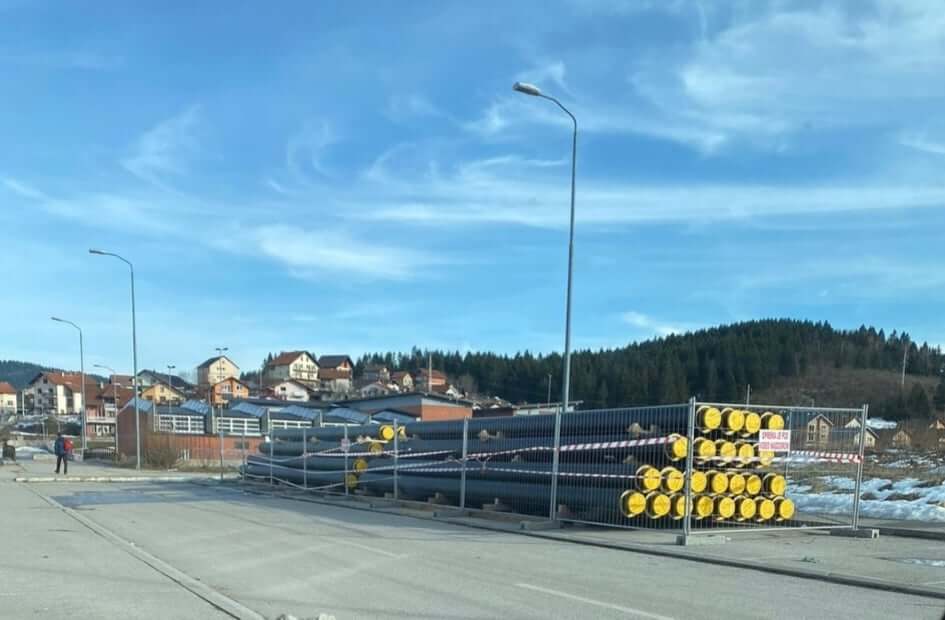By 2030, most of the activities from the process of green transition or decarbonization must be carried out in Bosnia and Herzegovina, in which tens of billions of KM of public or loaned money should be invested, which is why additional efforts are needed to prevent corruption in various proceedings.
Green transition or decarbonization practically means closing thermal power plants and mines, establishing electricity markets and stock exchanges, warming buildings, replacing home fireplaces, electrifying traffic from cars to railways… All these obligations have consequences: providing sufficient electricity from other sources, meaning the construction of new solar and wind power plants, development of the long-distance transmission network, employment of miners, revitalization of coal-dependent regions, replacement of home fireplaces with heat pumps or other heating sources, purchase of electric cars and providing a network for their power supply… In these activities, private investors should be included, and until the final goal, a series of public procurement procedures, award of concessions also have to be done…
Bosnia and Herzegovina, Montenegro, and Serbia are not ready to successfully lead the energy transition, so they are threatened by a chaotic state of a perfect storm when the transition processes cannot be managed, with unforeseeable socio-economic consequences, according to the Barometer energy transition developed by the Regional Center for Energy Transition (ReSET) and transmitted by the portal balkangreenenergynews.com.
Economist Faruk Hadžić warns that, given that this is a reform and a process that has a huge financial and development potential that provides greater opportunities for potential corrupt activities.
-Regardless of whether it will be loans or access funds if public procurement takes place through domestic institutions, it is very possible that corrupt activities will occur where private companies can participate and through agreements on certain tender specifications and conditions can affect the price. Corruption can also occur in the phase of preparation of a public invitation exclusively on the basis of specifications of individual products that are the subject of procurement or during the selection phase where the price can be agreed between other bidders, which can significantly increase the price of the whole process, warns Hadžić, who is involved in the preparatory processes as an expert.
Former Deputy Auditor General of BiH institutions Samir Mušović warns that the implementation of a number of activities envisaged by public administration reform and the harmonization of the legal framework with European standards would be crucial for the implementation of all energy transition measures.
-Acknowledging the announcements that the transitional measures will be accompanied by a series of investments in alternative energy sources and employment of fired miners from mines that are being closed, there is no doubt that by switching to e-Vlada (e-Government) services, finally solving the problem of electronic signatures, by opening options for investors such as one-stop shop confirmed that we are establishing at least the basic settings of modern public administration for such an economic turnaround. Experiences from the post-war period show us that we have neither the culture nor the habits of coordinated action of different levels of government, nor the traceability of decision-making in the periods we call from mandate to mandate, says Mušović.He emphasizes that by adopting a public policy document on energy transition and then by adopting completely new and modern legal solutions, and by adopting fully synchronized legal solutions, implementation strategies, action plans, harmonized expenditure plans, and other key documents, we could make a turn in relation to the previous practice of verbally embarking on reforms while maintaining the old legal framework according to which everything is in accordance with the law, even what is contrary to the reform commitments, and that in addition, we need to strengthen long-term and medium-term planning processes, harmonize budgets with key directions and plans, and use the transition to the annual program budget to implement and monitor the results of the energy transition.
-It is crucial to achieve full synchronization and harmonization of sectoral policies and programs such as the anti-corruption strategy. Shutting down certain economic capacities, protecting the environment, launching alternative energy sources includes harmonizing these activities with strategies for tourism development, rural tourism, harmonizing education programs with new needs, new, more humane, and environmentally friendly approach to spatial planning, new economic measures, and incentives for investments and so on, says Mušović. He reminds that the practice and policies that brought preferential treatments have not changed in BiH for years.
-We made decisions easily, and implemented practices full of inconsistencies and inconsistencies – we all know about the slow use of approved loans for which we pay special default interest because we are not able to start the implementation of announced projects. Imagine that this is how we start shutting down thermal power plants and mines and starting with old habits with party permits for new energy sources? So do we have new laws, a modern administration that can implement such a reform in a synchronized and traceable manner, ministers and prime ministers who are publicly affirmatively committed to a new course of action, are we ready for a completely new, European recognizable, Mušovć asks.
Damir Miljević from the Regional Center for Energy Transition (ReSET) also warns that this process involves large amounts in billions of KM, that it will be a problem to find money, but also to control its disposal.
-According to previous experience, we have a problem with non-transparent granting of concessions, permits, and other documents for the construction of facilities for the production of electricity from renewable sources. One mechanism is setting up or favoring certain investors and non-transparent allocation of jobs, concessions, opportunities, construction, etc. – we often witness this from other large projects in which certain investors were favored, contracts were declared business secrets, jobs awarded without any competition and there is great certainty that there were corrupt actions, and all these are well-known mechanisms that have been used in BiH for a long time without serious consequences for those who carry them out, warns Miljević.
Partial tabular presentation of liabilities and foreseeable consequences:
| OBLIGATIONS | CONSEQUENCES | PREDICTABLE RISKS |
| Close the mines | Take care of the miners, ensure that coal-rich areas continue to live | rapid bankruptcies of alternative economic engagements for former miners and thermal power plant workers; lack of acceptable spatial solutions for extinguished outdoor mines, closed thermal power plants, mines; social resistance to the implementation of the new energy public policy; social tensions due to unresolved pension and other workers’ rights, environmental devastation… |
| Turn off the coal-powered thermal plants | Provide the missing energy, build new facilities, expand the transmission network, conduct investor selection and public procurement… | unequal treatment of potential investors, exclusion of competition and competition, conflicts with spatial and environmental policies leading to litigation and unacceptable prolongation of proceedings… |
| Establish an electricity market | Establish a stock exchange and supporting institutions… | political governance of public enterprises in the energy sector |
| Stop the use of petrol and diesel vehicles | Procure new cars, electric ones, provide infrastructure for powering those cars | insufficient purchasing power of the population in BiH, unprofessional control institutions |
| Warm buildings and turn off bad home fireplaces | Provide funds for warming existing buildings, create a legal framework that will oblige builders to make all new buildings thermally insulated; provide funds for heating residential areas (pumps, radiators…) | Neglected rural areas, insufficient resources, slow implementation… |
| Railway electrification | Adjust the rail | Political resource management, lack of corporate governance principles, lack of promotion of railways as more favorable transport compared to road transport and subsidies to railways…. |
As a reminder, BiH has been a member of the UN Framework Convention on Climate Change (UNFCCC) since December 2000 and has been a signatory to the Paris Agreement on Climate Change since 2017, committing to reduce greenhouse gas emissions by at least 40% by 2030, and in November 2020 signed the Sofia Declaration on a Green Agenda for the Western Balkans, committing itself to align with the EU’s 2050 climate neutrality goals, which means preventing climate change and pollution, developing energy production, mobility, and the circular economy, and developing biodiversity, sustainable agriculture, and food production.
Now Europe’s first global goal should be to try to limit global warming to 1.5 ° C by 2030, which requires a 45% reduction in CO2 emissions compared to 2010, provided that this transition is fair, which means that due to the transition from fossil to sustainable and renewable energy sources, no one in the sector can be left without a job. The EU Energy Efficiency Directive, among other things, requires an annual increase in the renovation of public buildings by 3%, before which each country must make an inventory of buildings in order to monitor progress, and another obligation is the final energy consumption of 0.8%.
The European Commission has provided 9 billion euros for leading investments in the fields of transport, energy, green and digital transition, in order to achieve long-term growth and job creation. A number of developed countries have pledged to increase their financial contributions to developing countries, so the $100 billion-a-year target is expected to be reached in the coming years.
According to available data, there is no complete assessment of financial needs for all these procedures in BiH. It is said only that the prices of individual operations will depend on market changes, but also on the impact of energy savings that have already begun. The Ministry of Foreign Trade and Economic Relations of the BiH Council of Ministers (MoFTER), which has a leading role in all these processes, estimates that attracting private investors to finance low-carbon projects will be a key challenge and will need to actively develop barrier-reducing policies and fairly allocate risks and offer competitive returns.
The only official available estimate of the costs of transition to 2030 for BiH is from one of the strategies until 2030 – about 16.6 billion KM, but that amount for all obligations by 2050 could be far greater. But even when we provide money, control mechanisms are missing. Namely, all available reports of control institutions such as auditors and annual reports on the work of entity commissions for concessions, inspections, and others show that in BiH there is no adequate supervision over the implementation of contracts, that institutions are inefficient, procedures are unjustifiably complicated and long…
And what is being done or what has been done?
The MoFTER in the Council of Ministers of BiH explains that since 2013, BiH has been working on establishing a strategic framework guided by the principles of carbon neutrality. At all administrative levels in BiH, the process of harmonization of legislation in the field of energy with the acquis communautaire is underway. Since 2019, the Integrated Energy and Climate Plan of BiH (NECP BiH) is being worked on, which will define goals for increasing energy efficiency measures and increasing the share of renewable energy sources, and reduction of greenhouse gas emissions by 2030, as well as the necessary policies and measures to achieve them. The document will set realistic targets by 2030 for decarbonization, energy efficiency, the internal energy market, security of supply, innovation, research, and competitiveness, which will enable further development of the energy sector in BiH. At the same time, World Bank experts are working on a document that will define transition management. In these preparatory procedures, BiH has the assistance of international donors UNDP, USAID, GIZ… but there are also many procedures at lower levels of government, such as amendments to the law on construction in cantons that must be equalized and harmonized with the needs of transition, preparation of regions rich in coal for life after the closure of mines, preparation of electric power companies by paying CO2 taxes…. The MoFTER estimates that the energy transition management plan will be adopted in September 2022, after which the real work will begin. In addition, in March 2021, the Council of Ministers of BiH adopted the National Determined Contribution (NDC) of BiH for the period 2020-2030, in accordance with the Green Program for the Western Balkans, which sets out guidelines and policies for achieving climate neutrality until 2050, and the Framework Energy Strategy of BiH until 2035 was adopted.
The only one from the government who spoke about the possible cost of transition, ie the necessary funds, is Željko Komšić, who, then as chairman of the Presidency of BiH, said, at the Conference on Climate Change COP 26 in Glasgow in October 2021, that it could cost about 17 billion KM or 8.5 billion euros. His cabinet explains that this is only an estimate made by specialized teams for drafting an energy transition plan under the auspices of the Ministry of Foreign Trade and Economic Relations in the BiH Council of Ministers (MoFTER BiH), noting that this amount should be taken conditionally because the European Union situations and new technologies, change their financial estimates every few years.
Given the number of obligations and the necessary funds, Miljević believes that we definitely need to increase transparency.
-Now the basic mechanism in the world are auctions – the state or entities announce the possibility of building a certain production capacity and prescribe the conditions under which investors can apply and then the bids are collected publicly. Thus, the process is transparent and competitive and the possibility of corrupt practices is far less, and the costs are more favorable, says Miljević.
Hadžić also believes that the whole process can be improved by introducing digitalization in the procurement process and expert supervision of representatives of anti-corruption institutions in BiH, and Mušović, on the other hand, says that it would be necessary to organize a conference at the highest level every year between BiH and the EU on the implementation of energy transition measures and projects with the participation of prime ministers and line ministers (executive decision-makers).
–Practice has taught us that as soon as such a topic falls into the shadows of everyday life, there is nothing from its implementation, says Mušović and emphasizes that it is necessary to establish permanent independent civilian oversight whose reports would be discussed at these annual conferences.
Elvis Mujanović from GIZ warns that corruption in these processes can be prevented by creating a digital monitoring system managed by the ministries in charge of energy in BiH, agencies / statistical institutes in BiH, and other relevant bodies.
-Energy managers at the state, entity, cantonal and municipal levels participate in training with the aim of improving the quality of data collection using the planned monitoring system, thus contributing to a more transparent and participatory process. Furthermore, the project enhances the capacity of institutions to conduct public consultations and to establish a dialogue with the public, civil society, and the private sector. One of the goals of the project is to improve the capacity of competent public institutions for greater involvement of citizens through public information campaigns. Improved dialogue, citizen participation, and public awareness can contribute to improving transparency and thus be the basis for preventing abuse and reducing corruption risks, says Mujanović.
According to the MoFTER estimates, the first visible signs of the implementation of the energy transition will be determined by exact indicators by comparing them with the set goals, which will be determined by the professional and academic community in the coming years on a science-based methodology. However, they also warn that BiH, although it has enough of its own potential, if it does not work quickly and responsibly in the process of green transition, may become addicted to electricity imports.
(Interview)






